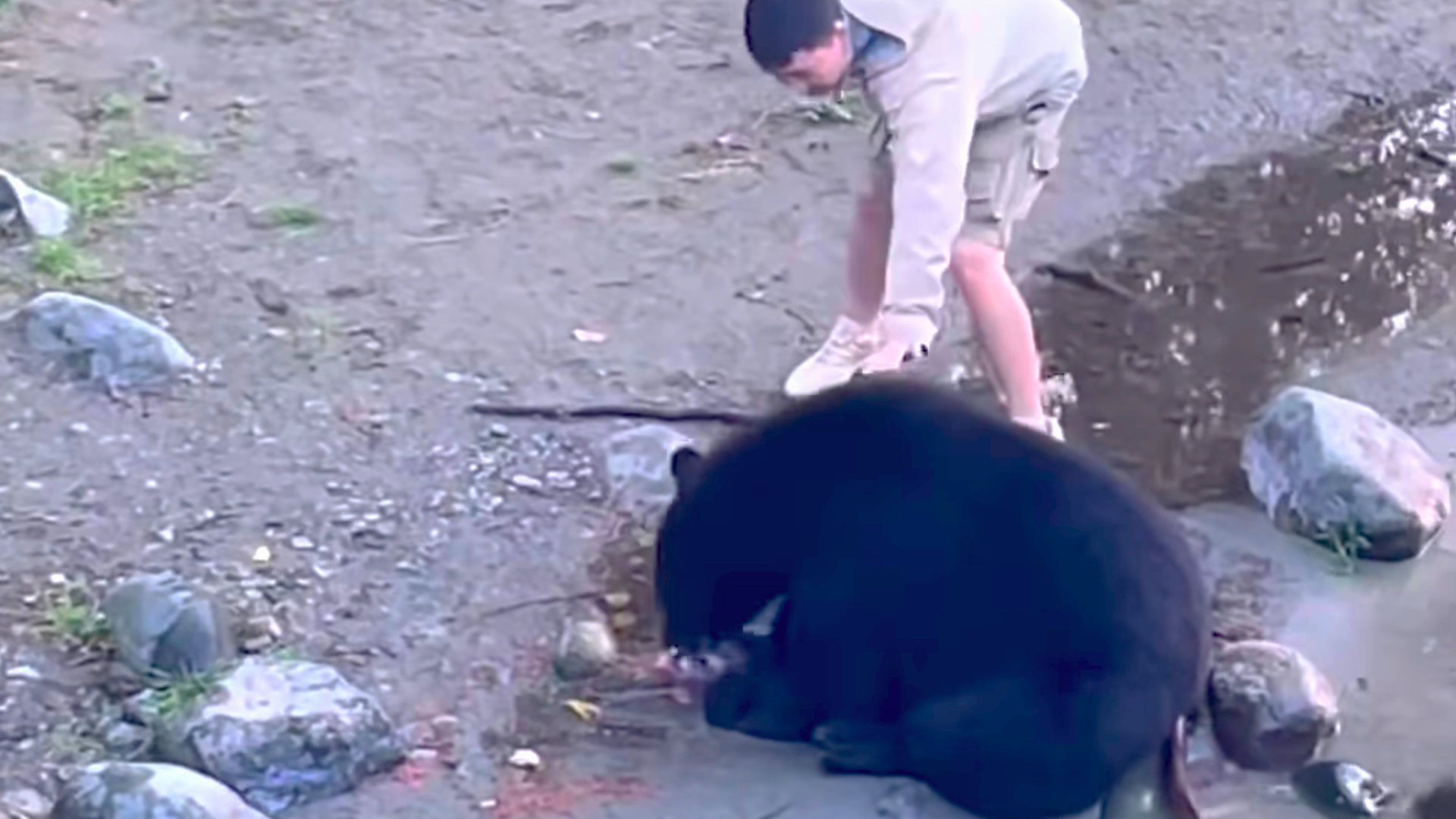Tourists keep poking and poking and poking bear… until it has enough
A bear trying to have a quiet meal draws an audience that just won’t leave it alone

All the latest inspiration, tips and guides to help you plan your next Advnture!
You are now subscribed
Your newsletter sign-up was successful
Some people, it seems, have never heard of the expression 'poking the bear', and this group of mind-bogglingly persistent tourists at Campbell River, British Columbia, Canada, got a lesson in just what it means from a bear that just wants a quiet meal.
The camera-wielding man seem blissfully unaware how dangerous a bear can be – especially when it’s eating – as they not so much edge, as charge closer and closer for photo opportunities and even a selfie. And to take a selfie with a bear you need to turn your back to the bear – not a good idea, especially when you’re close enough to smell its fish breath.
Finally one tourists actually strokes the bear…
A post shared by @touronsofnationalparks
A photo posted by on
This video was shared this weekend via the Instagram account TouronsOfNationalParks, which calls out bad behavior at sites of natural beauty. As the text posted with the video says, “You should never get that close to a bear… EVER! Especially when the bear is eating a meal! Bears can be extremely territorial and aggressive when it comes to their food, the bear could think you are competition for their meal and maul you! You could become the main course! Be smart, use common sense, and learn basic wildlife viewing etiquette.”
Other recent close calls have included a woman taking her young daughter onto rocks overlooking a raging waterfall, and a man poking a moose, with predictable results.
But it's widely reported that bear encounters are on the rise and one of the reasons cited for this is habituation. That’s when an animal is repeatedly exposed to a stimulus, and eventually stops responding to it. Wild animals, including bears, are naturally wary of humans and usually prefer to keep their distance, but when they come across humans regularly and there are no negative consequences, the animals no longer see us as a threat and are more likely to stand their ground or even approach.
Any wild animal can become habituated, but bears are particularly susceptible because of their intelligence, opportunism, and adaptability, which help them thrive in densely human-occupied areas. That does not mean a bear that allows humans approach it is domesticated and tame; it means that bear doesn’t consider you a threat so it will ignore you, until to encroach too far.
All the latest inspiration, tips and guides to help you plan your next Advnture!
- Best hiking backpacks 2023: from large rucksacks to lightweight daypacks
